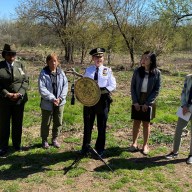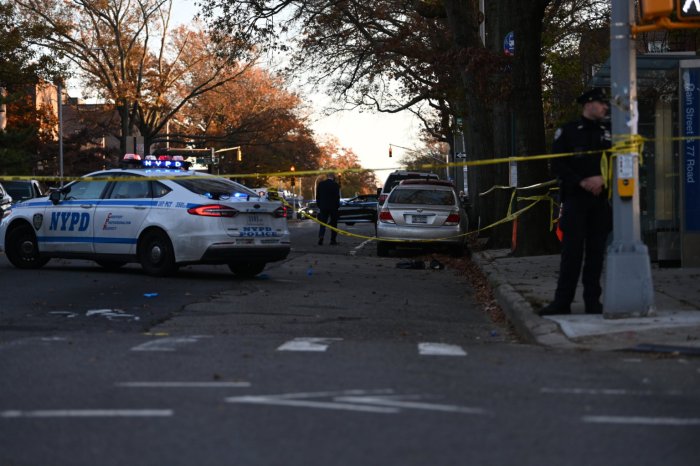By Jeremy Harrow
In a letter to MTA Chairman Peter Kalikow, Councilwoman Melinda Katz (D-Forest Hills) has asked the transit boss to halt the planned closings of 12 subway station booths in Queens that have some public officials and riders worried underground crime may rise.
The closures are to begin in July, with completion by the end of 2003. Some 62 booths across the city would be affected. Transit officials have said the move will save $6 million over a two-year period.
“This is not the time to incite fear and panic in a city that is struggling to create an economic resurgence to move us out of our current fiscal predicament,” Katz wrote to Kalikow, head of the Metropolitan Transportation Authority, which oversees the public transit system.
The councilwoman said she thinks the closings would be a disaster.
“Without the presence of station agents, crime would be allowed to flourish and oftentimes no one would be present to obtain emergency assistance,” Katz said.
However, the practical wisdom of shutting the booths is being called into question as recent audits of the MTA by New York State Comptroller Alan G. Hevesi and New York City Comptroller William Thompson revealed more money in the agency’s budget than it had previously disclosed.
Katz called on Kalikow to resolve the “uncertainty” generated by the recent audits and to “restore confidence in our government before token booths are closed and the riding public is put in jeopardy.”
At the 67th Avenue station in Rego Park, where one of the booths will be closed in July, several riders expressed misgivings about the future of the station, where the E,F, G and R lines run.
“I don’t think it’s fair that they should raise prices for services we’re not going to get,” said one straphanger. The young woman who asked not to be identified said she may think twice now about using the station late at night.
Another young woman who only gave her first name as Meredith, said she was not too bothered by the closings. “I don’t think they do much anyway,” the 26-year-old said. Although she agreed crime might escalate, she said she never thought the token booths provided “great security.”
But for Caroline Davies of Rego Park, who is 86, the fear is very real. “I’m scared when there’s not a soul around,” Davies said.
The elderly woman warned that “you couldn’t count on other people” to help in an emergency. Davies recounted a personal experience of falling down and limping to the token booth on her own.
Once there, however, she said the clerk was “very lovely” and summoned help for her. “Today, if there’s nobody there, what would you do?,” Davies asked.
The 67th Avenue station, with its vast football field-length corridor that stretches between the north and south entrances, could make late night travel an intimidating prospect without visible personnel like token clerks.
Charles Seaton, a New York City Transit spokesman, said all safety was handled by the New York Police Department. He said the decision process over which booths to close was done in cooperation with the NYPD. The stations chosen were “judged to be safe,” he said.
Seaton said people would benefit from the closings because the selected stations had part-time entrances that would now be open 24 hours. “More people will be able to use them now,” said Seaton.
Although Officer John Cordts of the 112th Precinct in Forest Hills said he did not have any information regarding future patrols for the 67th Avenue station, he said police can usually respond to any subway emergency within a few minutes of notification.





























